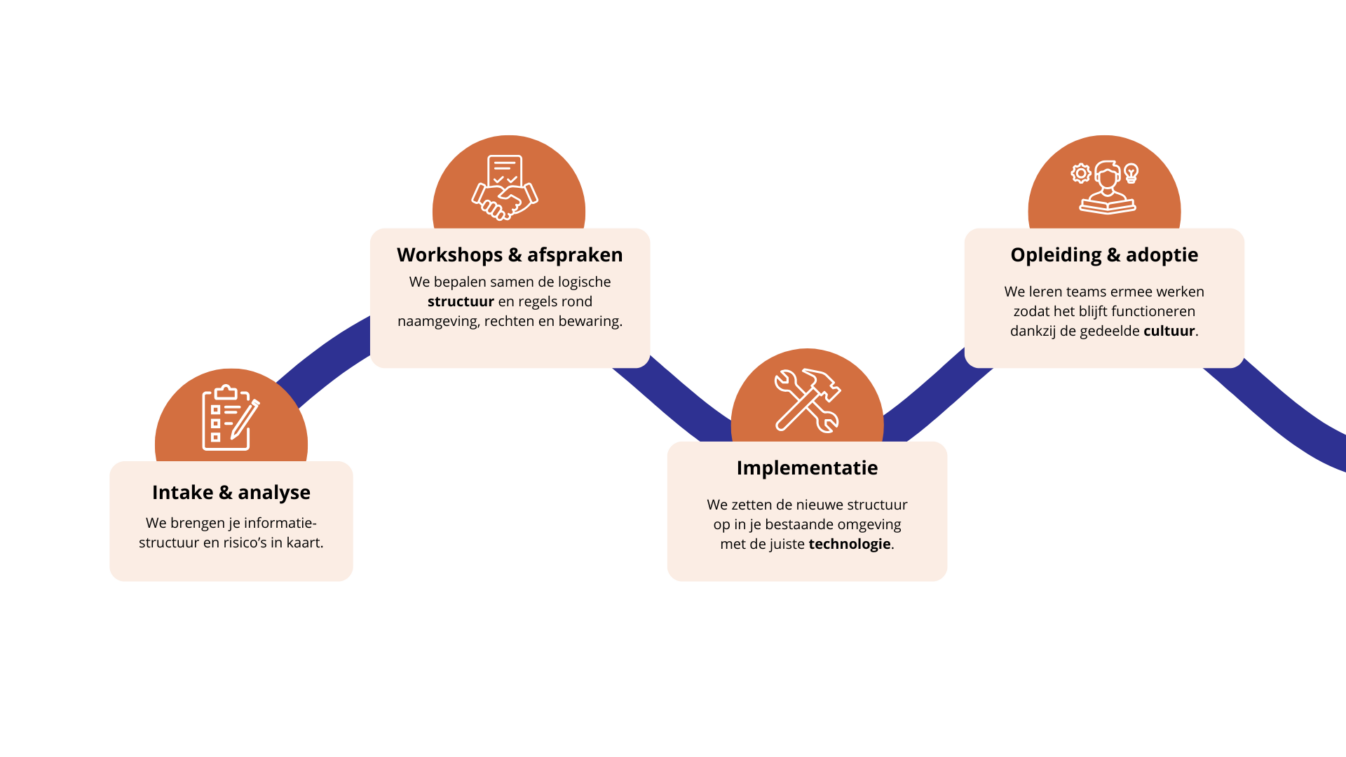Information management
Make information management the accelerator of your digital transformation

What is information management?
Often, organisations struggle to smoothly make the transformation from paper to digital information management. In addition, the explosion of various types of information has an impact on all processes within the work organisation.
Structuring your information, both online and offline, increases findability and thus facilitates work within your company or board. In addition to time and energy, it can also save or save you a lot of money, for instance if evidence is not lost in the mountain of information.
Information management means streamlining and structuring this information from a holistic and IT-agnostic approach, from its creation to its eventual destruction.
An effective information management plan is an essential part of good organisational control.
Zeticon offers crucial support tailored to your organisation.
Do you also ask yourself the following questions?
- What rules should I include when information is created?
- How do I generally map my process-related information?
- How can I archive and destroy my digital information in the most automated way possible?
- When and how do we deploy Teams, SharePoint and OneDrive For business?
- What is the policy around e-mail?
Then you are most probably looking for a good way to shape your organisation's information management!
Who is an information management course for?
An information management course is for the organisation that:
- Realises that they are stuck in organising and structuring their information
- Wants to gain insight into their own work, information and data management processes
- Wants to get digital (and physical) document flow under control
- Want to ensure information security (GDPR...) effectively
- Want to share and access information to the maximum using the right software
- Want to implement a future-proof archiving policy

The 4 principles of good information management
To achieve efficient information and archive management within your organisation, we start from several basic principles and prerequisites.
- Life-cycle management or archiving by design
- Information structure based on work processes
- Unique dossiers
- Maximum information sharing
Lifecycle/ Archiving by design
Identifying what will happen to process-related information. Archiving requires work processes and the information systems used in them to be set up accordingly.
Unique files
Unique files are complete (contain all information), qualitative (contain the right documents), well-structured (clearly arranged with a work process-aligned structure).
Information structure based on work processes
By properly structuring the information structure based on processes (and their components), users can quickly find the right documents.
Maximum information sharing
This means giving staff members the widest possible access to files. Of course, here we always take into account restrictions for business-critical and privacy-sensitive information.
Onze aanpak in 4 stappen
We combineren expertise in informatiebeheer met IT- ervaring. We vertalen
complexe vereisten naar werkbare afspraken, stap voor stap en met zichtbare resultaten.

Van documenten naar bruikbare kennis
We zorgen dat jouw informatie vandaag correct beheerd wordt en morgen klaar is voor AI
The move to Digital Archive Flanders
Digitaal Archief Vlaanderen is the solution to manage, preserve and disclose closed government information (short- and long-term). Zeticon has built the platform for this.
Perhaps you are currently taking the right steps to connect to the Digitaal Archief Vlaanderen platform.
Do you need support in setting up series for the series register? We can certainly help you with this.
Want to get started with an information management programme?
Contact us for a successful and sustainable information management project.